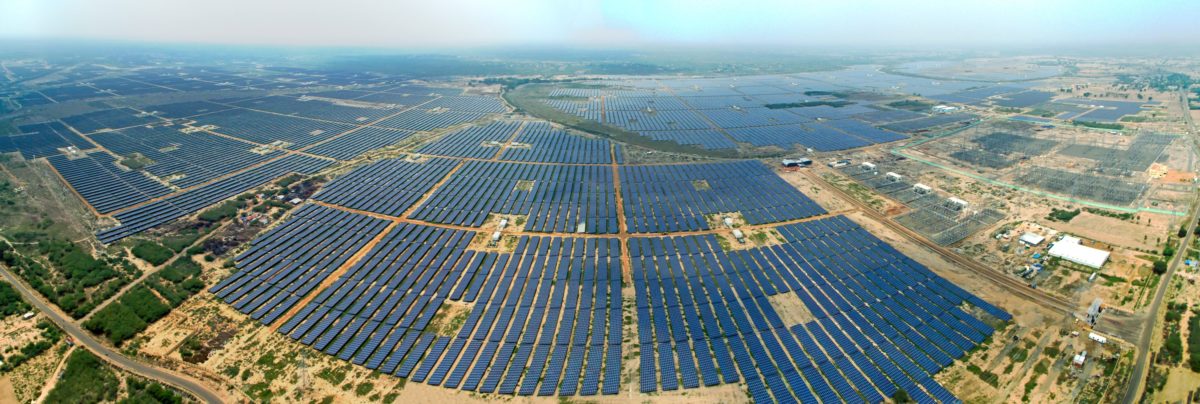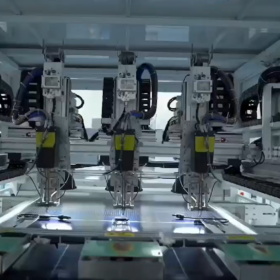In a landmark judgement, the Delhi-based Appellate Tribunal for Electricity (APTEL) has directed Tamil Nadu State Load Despatch Centre (TNSLDC) and The Tamil Nadu Generation and Distribution Corporation (TANGEDCO) to jointly pay a compensation to developers on solar power curtailment in Tamil Nadu during the four months from March 1-June 30, 2017. APTEL issued the order as it found curtailment instructions were issued to developers for reasons other than grid security during this period.
The TNSLDC and TANGEDCO shall pay compensation for 1,080 blocks at the rate of 75% of PPA tariff per unit within two months of the announcement of the order. The amount shall be computed separately for each developer based on the curtailment period/blocks falling in 1,080 blocks. The compensation is to be paid along with a 9% interest for the entire period.
In announcing the order, APTEL took note of an analysis done by Power System Operation Corporation Limited (POSOCO) based on the grid parameters, margins available for backing down of conventional energy sources, and the status of drawal by the State from the central grid. It found the parameters were apt for deciding whether the backing down is for grid security or for commercial reasons.
Passing the judgement, APTEL said, “It is clear that backing down was for collateral reasons and not for grid security and hence the Appellant’s members (developers) would be entitled to damages/compensation for willful losses caused by the Respondents who had acted illegally and in concert.”
POSOCO has been directed to carry out a similar analysis for the period up to 31.10.2020 and submit a report to TNERC within three months. Based on POSOCO report, TNERC shall allow compensation for the backed down energy at the rate of 75% of the PPA tariff per unit.
APTEL also ruled that replacing solar power with purchases of cheaper power from short-term power markets shall be treated as unauthorized activity. As a deterrent, the curtailment of renewable energy for reasons other than grid security shall be compensated at PPA tariff in the future, it said.
APTEL issued these directions to all the State Electricity Regulatory Commissions, DISCOMs and State Load Despatch Centres and directed the registrar to circulate a copy of this order to Ministry of New and Renewable Energy and Ministry of Power as well.
The matter
Solar developers in Tamil Nadu, represented by the National Solar Energy Federation of India (NSEFI), had approached APTEL challenging Tamil Nadu Electricity Regulatory Commission’s order dated 25.03.2019. In this order, TNERC had quashed developers’ request for payment of deemed generation charges for the loss of power generation units due to backing down instructions, citing the agreement signed with the Utility didn’t have any provision for payment of deemed generation charges.
During the stated period, TANGEDCO issued orders asking the solar plants to cease generation for as much as 7 to 10 hours in a day comprising the peak generation period out of 12 hours of generation in a day. However, the data available for frequency demonstrated that there was no violation of the optimum range of frequency.
In their appeal to APTEL, the developers held that TANGEDCO and TNSLDC were acting hand in hand in the scheduling of cheaper power than the expensive solar power. They referenced the POSOCO report that indicated solar generators with a per-kWh cost of INR 7.01 were curtailed more in terms of instances of curtailment and percentage generation compared to other solar generators.
“The investments made in establishing solar projects, and the solar tariffs so determined, was premised on Must Run status as contemplated under the Act and the provisions in the energy purchase agreement. If must-run status is not adhered to by TANGEDCO and SLDC, the members of the Appellant association would be deprived of recovery of legitimate tariff. As solar power tariff is a single part and it is predominantly fixed cost in nature, unauthorized curtailment will ultimately result in solar generators failing to repay their loans,” said the developers.
This content is protected by copyright and may not be reused. If you want to cooperate with us and would like to reuse some of our content, please contact: editors@pv-magazine.com.









1 comment
By submitting this form you agree to pv magazine using your data for the purposes of publishing your comment.
Your personal data will only be disclosed or otherwise transmitted to third parties for the purposes of spam filtering or if this is necessary for technical maintenance of the website. Any other transfer to third parties will not take place unless this is justified on the basis of applicable data protection regulations or if pv magazine is legally obliged to do so.
You may revoke this consent at any time with effect for the future, in which case your personal data will be deleted immediately. Otherwise, your data will be deleted if pv magazine has processed your request or the purpose of data storage is fulfilled.
Further information on data privacy can be found in our Data Protection Policy.